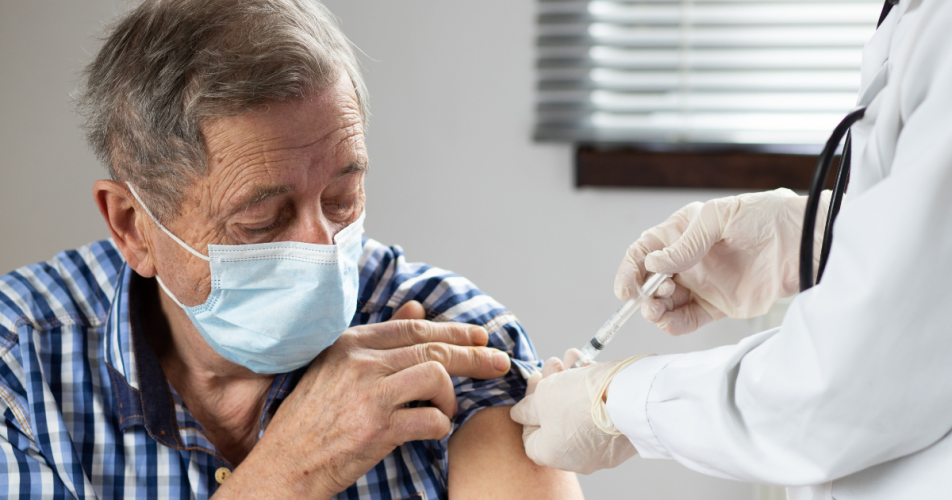COVID infection rates rising again
With more than 33,000 Queenslanders diagnosed with COVID so far this year and more than 230 hospitalised with it in the past week, it's time to take precautions, AMA Queensland President Dr Nick Yim has told ABC Radio Queensland. "Vaccination is key. While the vaccination may not prevent you from getting COVID, it can prevent you getting seriously ill or even needing to get into hospital, which is a good thing."

Transcript: AMA Queensland President, Dr Nick Yim, ABC Radio Queensland, Mornings with Susan Graham-Ryan, Tuesday 18 June 2024
Subject: COVID infection rates and recovery times
SUSAN GRAHAM-RYAN: COVID-19 - do you remember when you couldn't go five minutes without hearing about it? It was obviously a very important conversation at that time, but it's become something that we're just living with now. But it hasn't disappeared. With winter now upon us, should we be keeping more of an eye out for it? And should we have concerns? Dr Nick Yim is the President of AMA Queensland and is based in Hervey Bay. Good morning.
DR NICK YIM: Good morning, Susan.
SUSAN GRAHAM-RYAN: What's some of this latest research telling us about the impact of COVID? I saw that one in five people can take quite a long time to recover.
DR NICK YIM: Yeah, absolutely. We are seeing some new research coming out from the US showing that one in five people report not fully recovering from COVID for over three months, and this can be quite concerning. What we are seeing is, definitely in Queensland, a rise in numbers of COVID infections.
SUSAN GRAHAM-RYAN: What are the sort of things in terms of COVID that we need to be looking out for at the moment? Obviously there used to be very regular updates, hourly updates nearly, about the number of infections and the strains that are doing the rounds. What’s on the cards for you as doctors that you're looking out for?
DR NICK YIM: We are currently in winter. We've had the cold chill come through. I know I'm rugged up in Hervey Bay. With winter also comes the respiratory viruses. So we're seeing COVID, we've got influenza, we’ve also got RSV. And we are seeing a rise of numbers of COVID. Over just the past week, over 2,000 people have been diagnosed across Queensland with COVID and more than 33,000 so far this year. So the numbers are still there. It's a lot less than last year, but COVID is still making people quite sick. The key thing here is actually a reminder to the community that these respiratory viruses are still with us.
SUSAN GRAHAM-RYAN: Still with us, and still can be quite nasty for some people, like we're hearing with some people taking more than three months to recover.
DR NICK YIM: Absolutely. And we know that for people who are vaccinated, recovery is faster. While the vaccination may not prevent you from getting COVID, it can prevent you getting seriously ill or even needing to get into hospital, which is a good thing.
SUSAN GRAHAM-RYAN: You're hearing from Dr Nick Yim, the President of AMA Queensland. Now, we used to have very strict rules about what we had to do if we had symptoms or if we had COVID. What should people be doing at the moment if they do have it?
DR NICK YIM: Obviously when the pandemic first started in 2019, there was a lot of messaging there, and it’s important not to forget that messaging. Vaccination is key. So for those of you who haven't had the COVID booster or you haven't had your influenza immunisation, it's really important to have a chat with your GP to get that done. AMA Queensland has worked with the Queensland Government and we've advocated for these free vaccinations, which is really positive.
The other thing is, if people are unwell - we are in a cough and cold season - with fevers, runny nose or cough, please stay at home. Please don't go into work and infect everyone else at work. Likewise, if you have children, if your kids are unwell, please don't send them to school. It's probably a good opportunity to let them stay at home and recover.
SUSAN GRAHAM-RYAN: You mentioned before how many people have recently tested positive for COVID. Do you think that that's a fairly accurate depiction of the real situation, given we don't have to report it anymore?
DR NICK YIM: Yeah, those numbers that I've stated are only the ones that have been recorded by Queensland Health. Obviously many of us will have maybe a RAT test, and do the right thing and stay home. So I think those numbers are likely to be much higher. The circulating virus numbers are probably higher than that.
SUSAN GRAHAM-RYAN: In case it's slipped people's minds, what are the some of those general prevention things that we should be doing in terms of washing our hands and those hygiene things that we were reminded so much about during that COVID, the height of COVID?
DR NICK YIM: Obviously immunisations, that's one thing. Prevention is better than cure. Washing the hands, making sure of hand hygiene, cleaning those surfaces. At the same time, if people do have symptoms such as a cough and a runny nose, there's no harm in wearing a mask. Wearing a mask doesn't hurt you. If you can't socially distance from one another, it's a good opportunity to wear a mask. I flew to Cairns a couple of weeks ago and I wore a mask, and that's something to help protect myself as well.
SUSAN GRAHAM-RYAN: Dr Nick Yim, President of the AMA Queensland, thank you very much for your time this morning.



